What is a Princess Cut Diamond? | Rare Carat
A “Princess cut” is a type of modified square or rectangularly shaped brilliant cut diamond. These diamonds may have differing numbers of facets set in a square or rectangular outline. While these diamonds may have different sizes and outlines, their straight edges allow for stones to be easily set next to each other with no empty space between them. This is great for people who want jewelry with multiple stones.
What is a brilliant cut diamond?
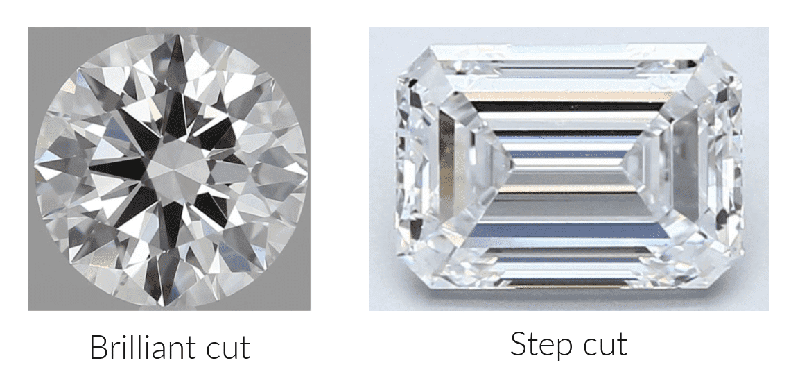
You may be asking, what exactly is a brilliant cut stone? First invented in 1919 by Marcel Tolkowsky, the brilliant cut uses mathematics to maximize the light reflection and overall appearance of diamonds. Future cutters would build upon this initial blueprint to create new shapes which resulted in an explosion of modified brilliant cut diamond categories within which is the princess cut.
Who invented the princess cut diamond?
Specifically, the princess cut was created in 1981 by Betzalel Ambar and Israel Itskowitz. Although the princess cut alignment is accepted by the GIA as a configuration of facets, their exact number and proportions are not standardized. To achieve the most beautiful square shape, a length to width ratio of 1.0-1.05 is best. However, you will see striking rectangular shapes with many different ratios. Moreover, they may have either bezel corners, which are more durable, or can be French-tipped.
The dazzling features of the princess
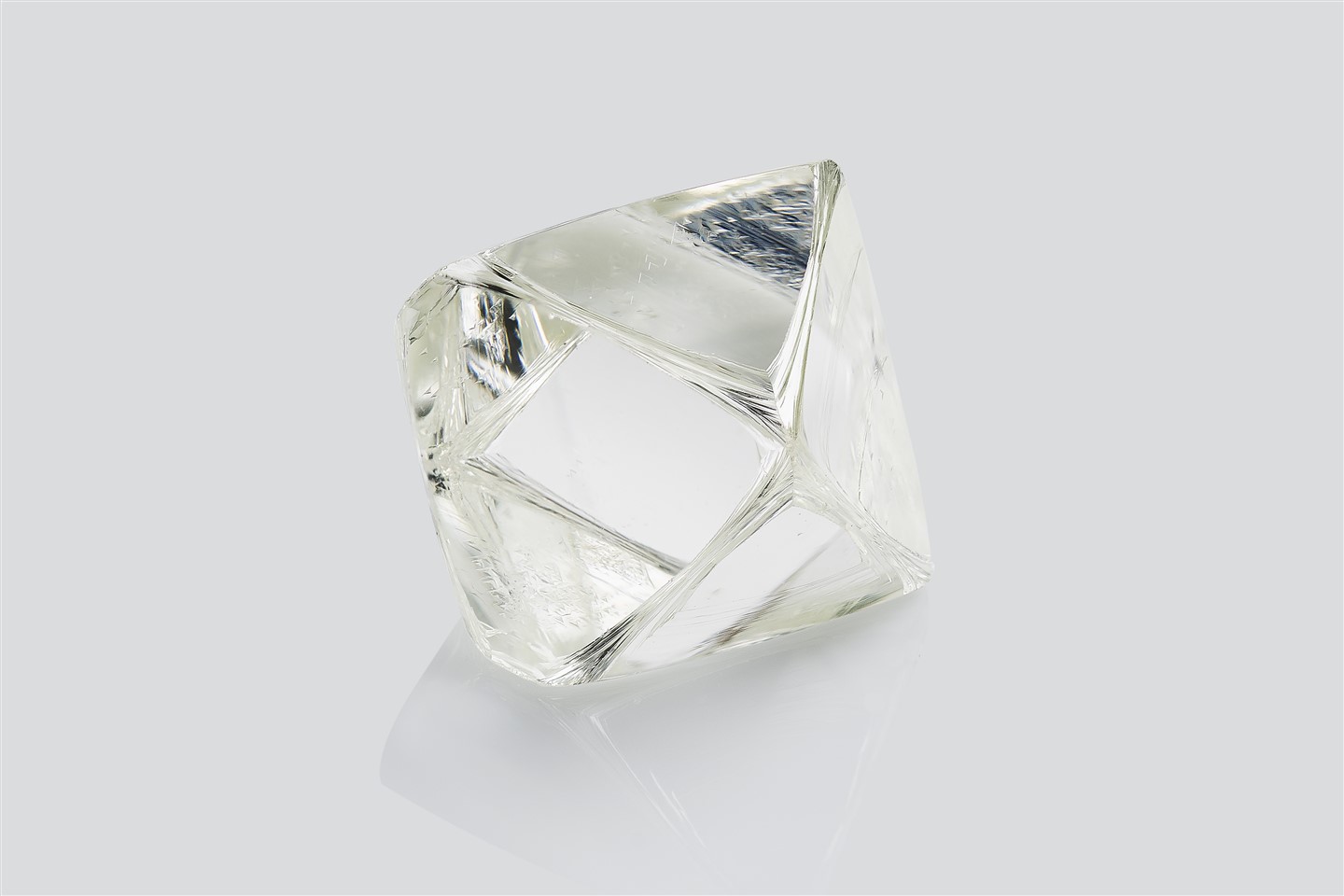
The shape
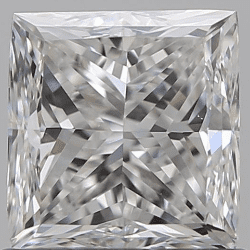
Princess cuts became popular quickly for many reasons. Firstly, their pyramidal shape with most of the weight in the pavilion maximizes how much of a raw diamond rough can be used in the final product. While Round Brilliant stones may discard up to half of the original rough, princess cuts commonly lose only twenty percent! Saving so much weight means less waste and markedly lower prices for you!
The deepness of the stone makes it appear bright, but it also means that the face-up outline of a Princess cut relative to other cuts of similar carat weight may appear to be smaller. When shopping for diamonds, be sure to view the stone from the side. You want to see a gentle angle that is straight. If the pavilion angle is bowed outwards, or seems to be thick, you may be paying extra for unnecessary carat weight.
The optical brilliance
While no other cut can match the optical perfection of the round brilliant, well-cut princess cut stones receive high marks on the three main factors that gemologists take into account when evaluating the appearance of diamonds: brilliance (the white flashes), fire (the colored flashes), and scintillation (the overall pattern of sparkle). Generally speaking, the squarer the stone’s proportions, the better the effect. The non-standard two to four chevron-shaped facets on the pavilion of princess cuts can yield lots of different effects. Fewer chevron facets can mean brighter brilliance and fire. Conversely, more of these facets create intricate scintillation patterns. No matter which factors you are searching for, there is a unique princess cut stone that will appeal to you!
What setting is best?
Keep in mind that, like any gemstone that has corners (particularly French-tipped corners), those tips are susceptible to damage. If you are shopping for rings, it is advantageous to find a design that protects those corners using robust prongs or bezel settings. Additionally, the large face-up tables of these diamonds and complex scintillation patterns can make clarity issues (inclusions) more evident. You may want to seek out a stone that has a higher clarity grade and is considered “eye-clean”; typically, this means a clarity grade of SI1 or better.
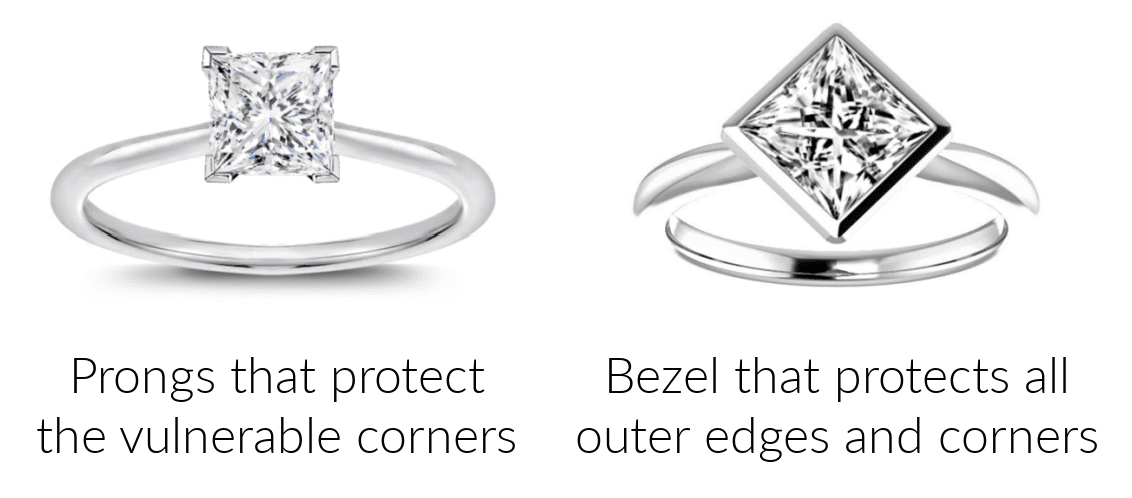
Finally, the deep underside of princess cut stones causes them to absorb the color of their mountings more than round brilliants will. If a white color is important to you, definitely opt for a white metal setting. However, a princess cut stone in a yellow or rose gold setting can have an appealing, soft color. If you are looking for a piece with multiple stones, it is worth taking the time to make sure that the stones are well matched in color. Remember, you have the power to create customized jewelry that is perfect for you!
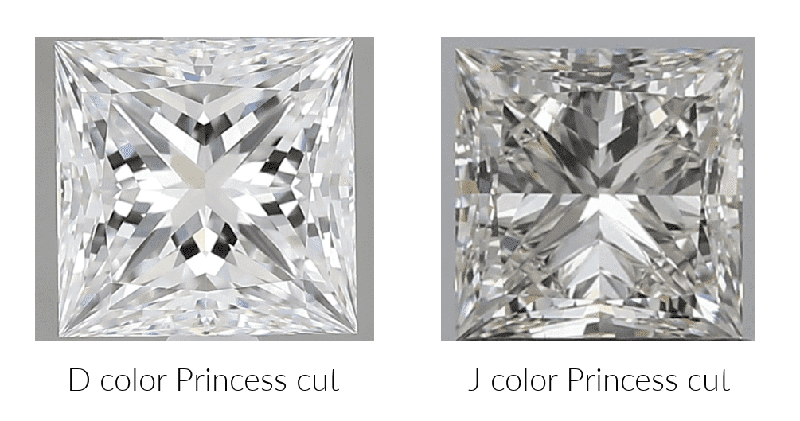
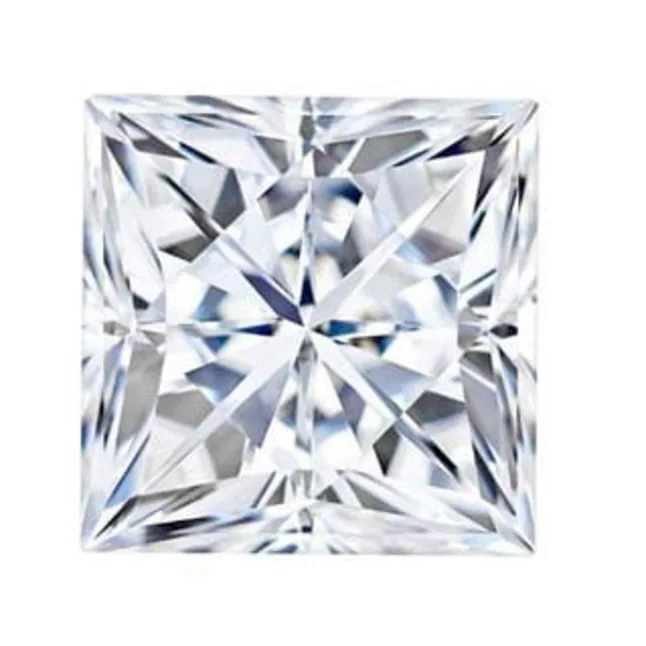
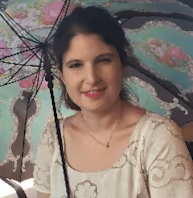
Princess Cut Diamond FAQs